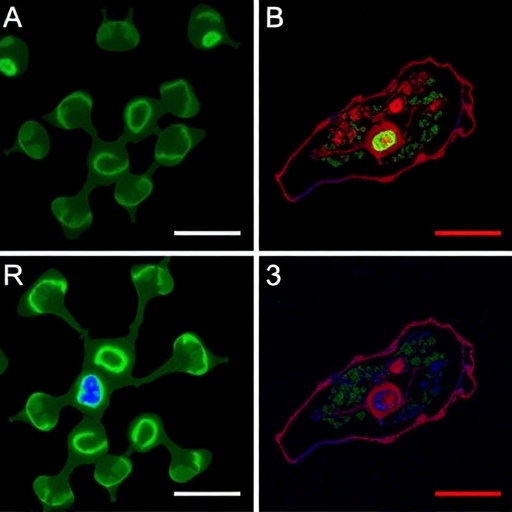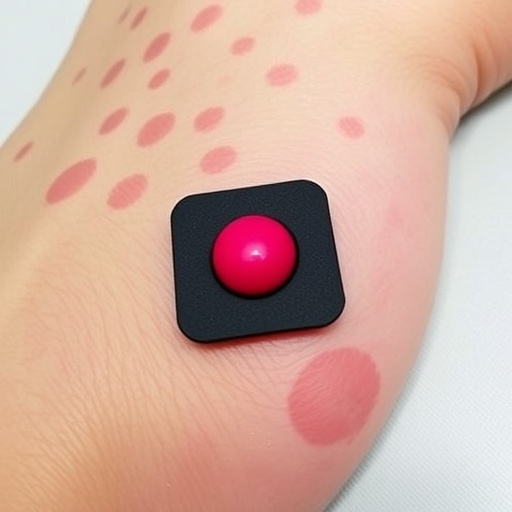The National Institutes of Health has awarded a R01 grant to a multi-institutional team to develop and evaluate a pregnancy-specific Artificial Pancreas in a sequence of in-clinic and transitional environment clinical trials. The researchers hope that the first-in-the-nation studies will lead to a safe and effective at-home clinical trial with an extension phase to the end of pregnancy.
The project brings together the experienced engineering team of the Harvard John A. Paulson School of Engineering and Applied Sciences and a clinical research consortium made up of specialists from the Icahn School of Medicine at Mount Sinai, the Mayo Clinic, and the Sansum Diabetes Research Institute.
“This work will bring our previous advancements in artificial pancreas technology to the next level, and will be the first project of its kind in the United States,” said Principal Investigator Dr. Eyal Dassau, Director of the Biomedical Systems Engineering Research Group at the Harvard John A. Paulson School of Engineering and Applied Sciences.
“Achieving and maintaining the very narrow range blood glucose levels required for the best fetal outcomes for pregnant women with type 1 diabetes is extremely challenging, even with optimal clinical care,” said Carol J. Levy, MD, CDE, Clinical Director of the Mount Sinai Diabetes Center, who has managed the care of hundreds of pregnant women with this condition and serves as the project’s principal investigator at the Icahn School of Medicine at Mount Sinai. “The use of customized technology provides an important opportunity to improve patient and fetal outcomes. We are excited to be part of the team evaluating this important area of research designed to improve care and reduce patient burden.”
“Women with type 1 diabetes experience significant insulin reactions as they try to manage their glucose within a narrow target range throughout pregnancy. There has been no artificial pancreas trial involving pregnant women with type 1 diabetes in the U.S.,” states Yogish C. Kudva, Professor of Endocrinology at Mayo Clinic Rochester. “We are excited that we will adapting automated insulin delivery to relieve the burden on pregnant women with type 1 diabetes and their families.”
“This project will adapt the artificial pancreas to help pregnant women at each stage of pregnancy, progressing from a sequence of in-clinic studies to an outpatient trial,” said Dr. Jordan Pinsker, principal investigator of the project at Sansum Diabetes Research Institute (SDRI). “This project continues the legacy of the work of Dr. Lois Jovanovic, who performed her groundbreaking clinical trials at SDRI for 27 years, laying the foundation for the current standards of care in diabetes and pregnancy.”
The first clinical trial in the grant, Longitudinal Observation of Insulin Requirements and Sensor Use in Pregnancy (LOIS-P), is named after Dr. Lois Jovanovic, and is now listed on clinicaltrials.gov (NCT03761615). This study is currently enrolling pregnant women with type 1 diabetes and will follow their glycemic outcomes throughout pregnancy and into the post-partum period.
About the Research Consortium:
Harvard John A. Paulson School of Engineering and Applied Sciences (SEAS)
SEAS serves as the connector and integrator of Harvard’s teaching and research efforts in engineering, applied sciences, and technology. Through collaboration with researchers from all parts of Harvard, other universities, and corporate and foundation partners, we bring discovery and innovation directly to bear on improving human life and society. http://seas.
Icahn School of Medicine at Mount Sinai
The Type 1 Diabetes Research program at the Icahn School of Medicine at Mount Sinai focuses on clinical research projects specifically designed to improve the lives of patients with diabetes. There is a long history of both basic and clinical research in diabetes at Mount Sinai dating back to the discovery of the radioimmunoassay to measure serum insulin levels by Nobel Laureate Rosalyn Yalow, PHD in 1977. Researchers at Mount Sinai are running a robust outpatient artificial pancreas program in New York City. The goal for all diabetes research at Mount Sinai is to continue to develop new treatments and improve patient care until there is a cure.
Mayo Clinic Rochester MN
The type 1 diabetes research program at Mayo Clinic Rochester is tightly integrated with the Diabetes Technology clinic which is a multi-disciplinary effort with dedicated Endocrinologists, Nurse Practitioners, CDEs and device technicians. The research program has conducted AP studies since 2013 and is currently conducting several AP studies working with academic engineering partners such as the Harvard School of Engineering AP program and industry partners. The Division of Endocrinology has been involved with Insulin related research since 1922 and also played a key role in early development of complex insulin therapy from 1975 to 1985.
Sansum Diabetes Research Institute
Most recently, SDRI was the only US clinical site for the landmark CONCEPTT clinical trial, where 325 women who were either pregnant or planning pregnancy were randomized to continuous glucose monitoring use or fingerstick self-monitoring of blood glucose (SMBG) alone until delivery. Dr. Jovanovic, performed her groundbreaking work at SDRI for 27 years, from 1986-2013, laying the foundation for current standards for care in diabetes and pregnancy. Dr. Jovanovic was SDRI’s former Chief Executive Officer and Chief Scientific Officer from 1996-2013.
“Dr. Jovanovic’s courageous and relentless fight to teach the world how to care for women with diabetes led to a global improvement in outcomes for both moms with diabetes and their babies,” said Dr. Kristin Castorino, also a co-investigator on the project at SDRI.
“It is an honor for us at SDRI to continue Dr. Jovanovic’s legacy to improve the treatment of pregnant women with diabetes. Advancing her work in this field has always been part of SDRI’s commitment to both our community and the diabetes community at large to progress diabetes research and innovation for those impacted by type 1 diabetes, type 2 diabetes or gestational diabetes,” said Ellen Goodstein, SDRI’s Executive Director.
###
About the Mount Sinai Health System
The Mount Sinai Health System is New York City’s largest integrated delivery system, encompassing eight hospitals, a leading medical school, and a vast network of ambulatory practices throughout the greater New York region. Mount Sinai’s vision is to produce the safest care, the highest quality, the highest satisfaction, the best access and the best value of any health system in the nation. The Health System includes approximately 7,480 primary and specialty care physicians; 11 joint-venture ambulatory surgery centers; more than 410 ambulatory practices throughout the five boroughs of New York City, Westchester, Long Island, and Florida; and 31 affiliated community health centers. The Icahn School of Medicine is one of three medical schools that have earned distinction by multiple indicators: ranked in the top 20 by U.S. News & World Report’s “Best Medical Schools”, aligned with a U.S. News & World Report’s “Honor Roll” Hospital, No. 12 in the nation for National Institutes of Health funding, and among the top 10 most innovative research institutions as ranked by the journal Nature in its Nature Innovation Index. This reflects a special level of excellence in education, clinical practice, and research. The Mount Sinai Hospital is ranked No. 18 on U.S. News & World Report’s “Honor Roll” of top U.S. hospitals; it is one of the nation’s top 20 hospitals in Cardiology/Heart Surgery, Gastroenterology/GI Surgery, Geriatrics, Nephrology, and Neurology/Neurosurgery, and in the top 50 in six other specialties in the 2018-2019 “Best Hospitals” issue. Mount Sinai’s Kravis Children’s Hospital also is ranked nationally in five out of ten pediatric specialties by U.S. News & World Report. The New York Eye and Ear Infirmary of Mount Sinai is ranked 11th nationally for Ophthalmology and 44th for Ear, Nose, and Throat. Mount Sinai Beth Israel, Mount Sinai St. Luke’s, Mount Sinai West, and South Nassau Communities Hospital are ranked regionally.
For more information, visit http://www.
Media Contact
Kathryn Ullman
[email protected]
212-241-9200




